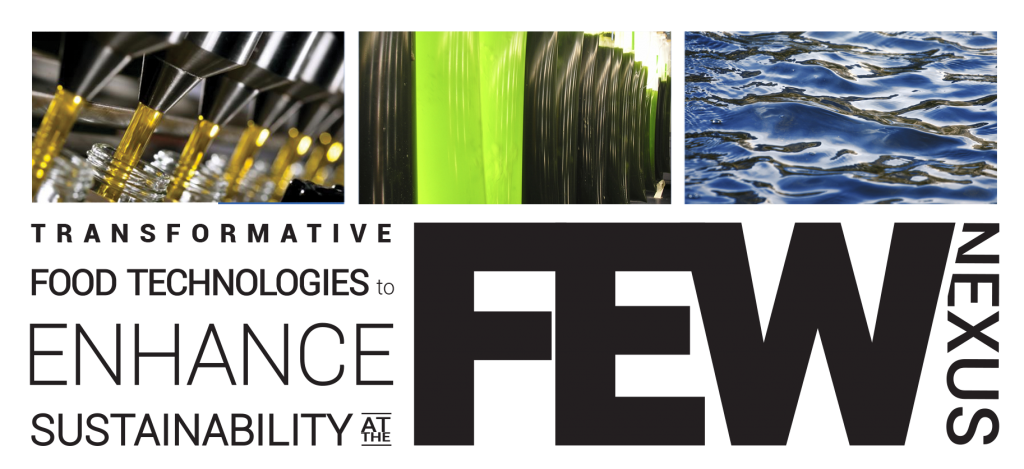Transformative Food Technologies to Enhance Sustainability at the FEW Nexus
NSF Food, Energy, and Water (FEW) Nexus Workshop
The University of Nebraska-Lincoln, in collaboration with Georgia Tech, the Ohio State University and industry partners, is hosting a three-day multidisciplinary workshop on “Transformative Food Technologies to Enhance Sustainability in the FEWS Nexus.”
We are seeking applications from science and technology experts for a workshop focusing on technologies that can make a transformational change in
- Food sanitation
- Waste reduction
- Multi-scale process modeling and design
- Socioeconomic behavioral analysis to mitigate barriers to technology adoption
Date: February 22-24, 2016
Location: The workshop will be held at Nebraska Innovation Campus (NIC), in Lincoln, Nebraska. NIC is a research campus designed to facilitate new and in-depth partnerships between the University of Nebraska and private sector businesses. Innovation in the food, water, and energy sectors is a major focus of NIC.
Applying for the Workshop
Space for the workshop is limited to 50 participants. Those interested in participating are asked to submit a one-page position paper addressing the workshop topics. Position papers will be reviewed and those selected will be invited to participate in the workshop.
To apply for one of these spots, interested participants must upload a single document containing a two-page NSF biosketch of the lead PI and a one-page position paper addressing one or more of the topics listed below:
- Novel sanitation technologies that can make a transformational change in the food industry (similar to how cleaning-in-place technologies transformed the food industry five decades ago).
- Innovative waste reduction technologies that improve efficiency in resource utilization and produce value-added products and/or changes in upstream and downstream processes that are required to make transformational changes at the FEW nexus.
- Multi-scale process modeling efforts that can be used to design “green” processes and products throughout the food processing spectrum.
- Mitigating socioeconomic and behavioral challenges in adopting new technologies.
Applications must be submitted by January 21, 2016.
All concept papers will be screened and invitations to participate will be sent by January 25th, 2016
